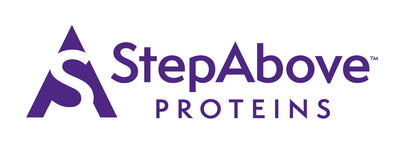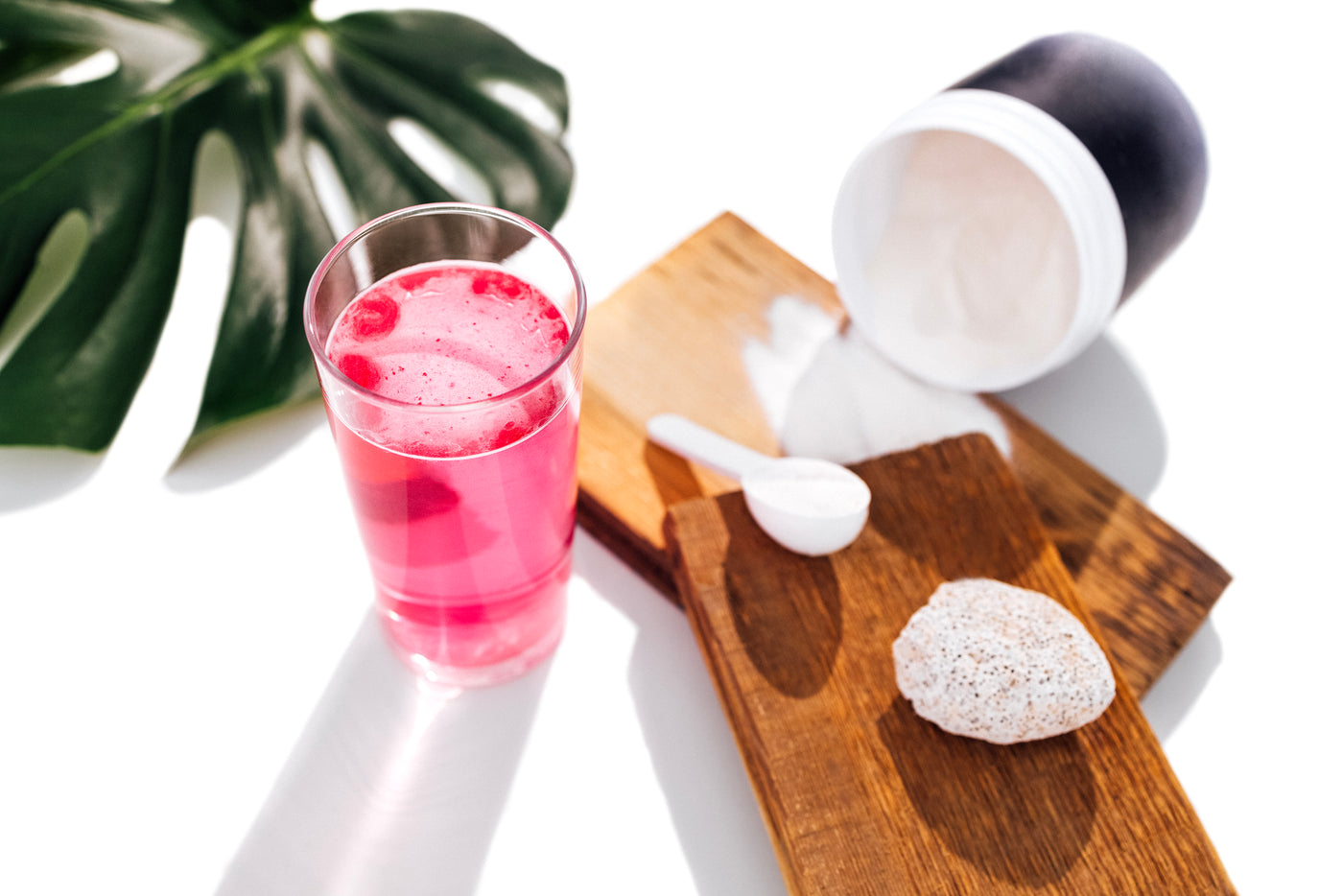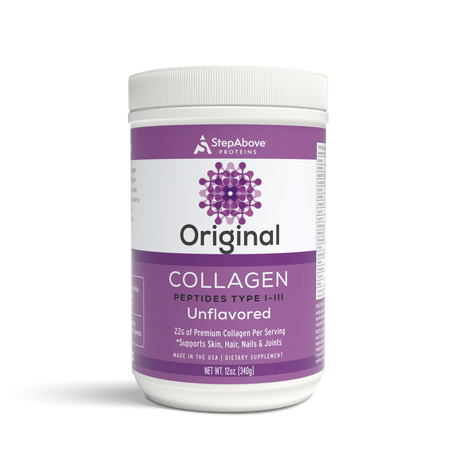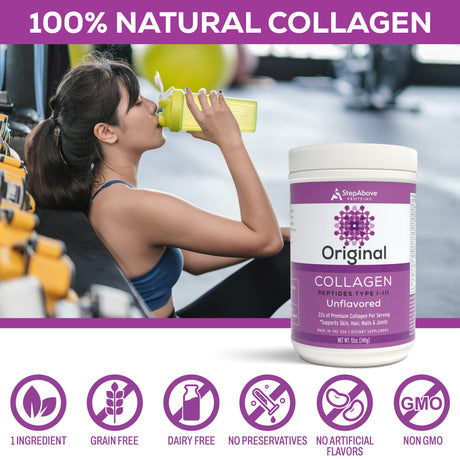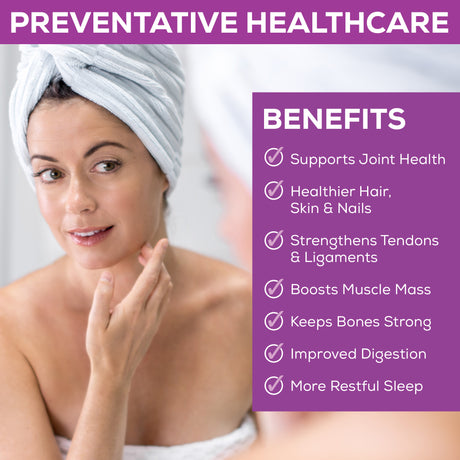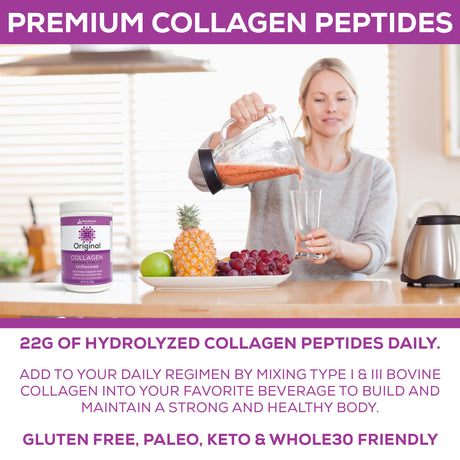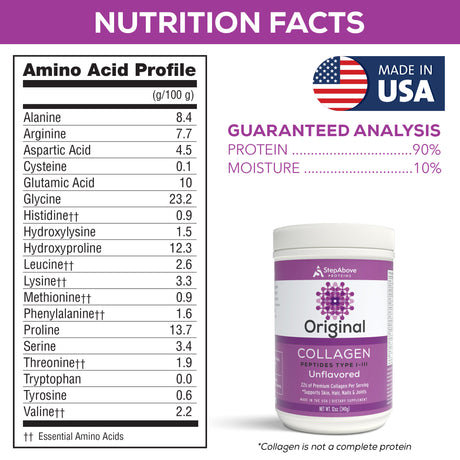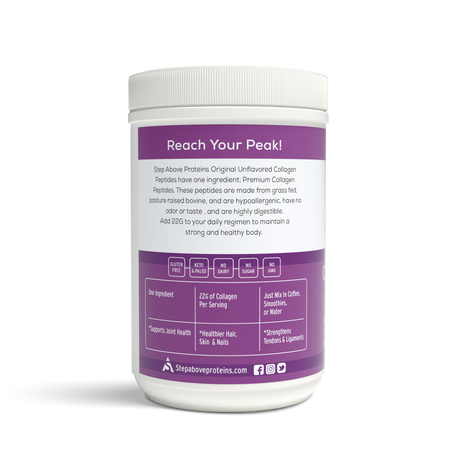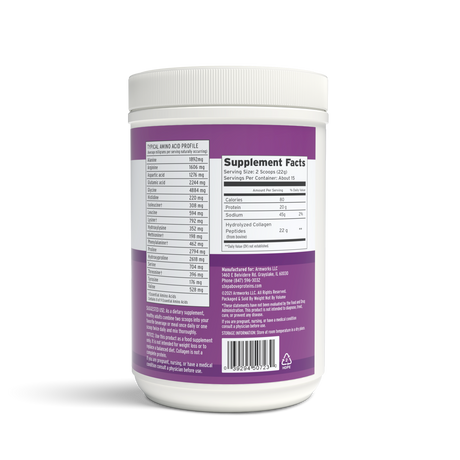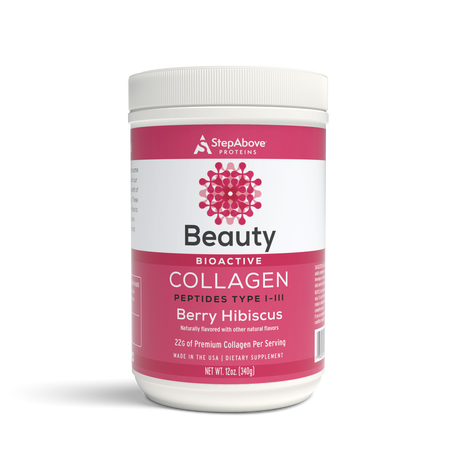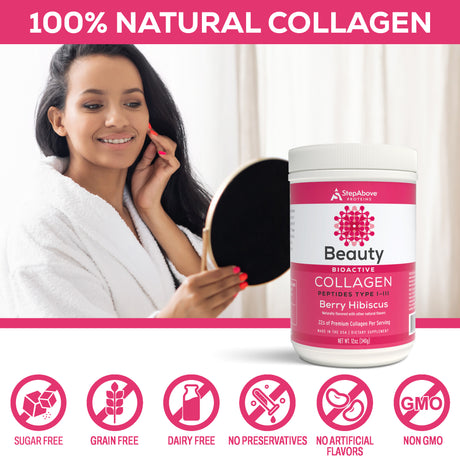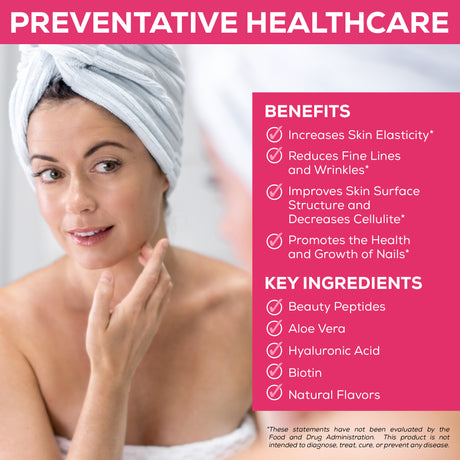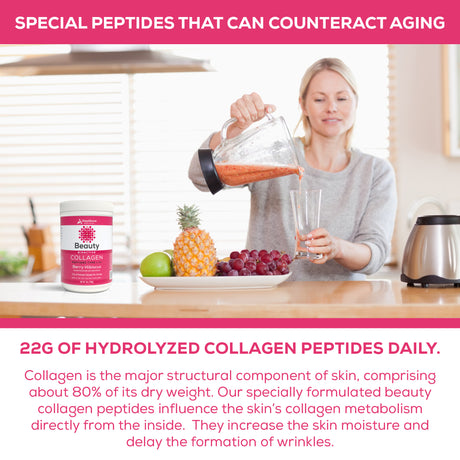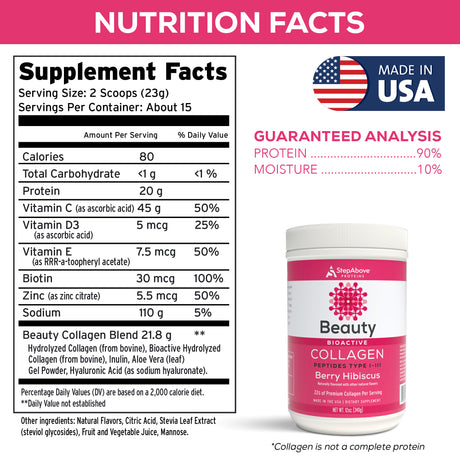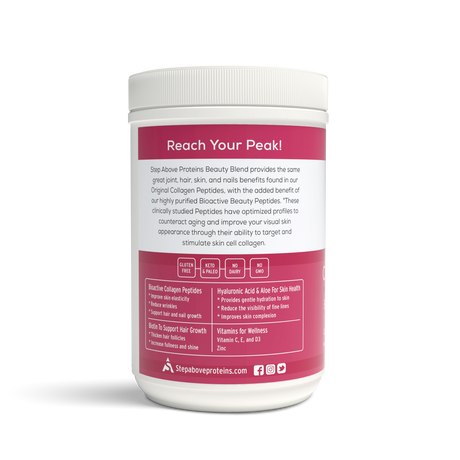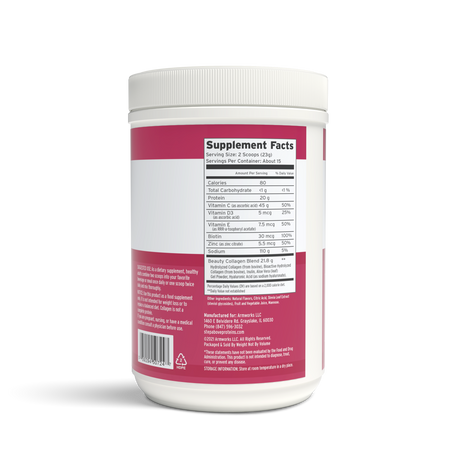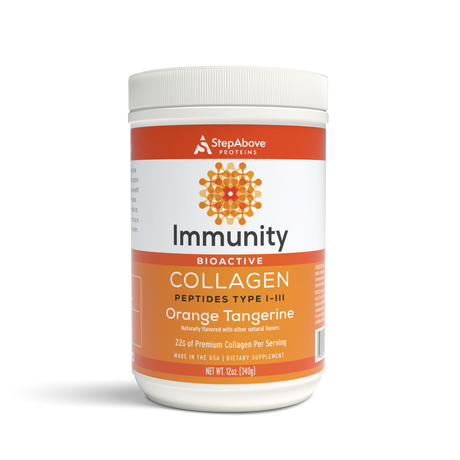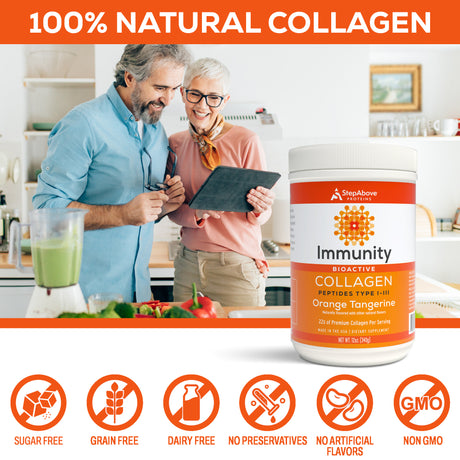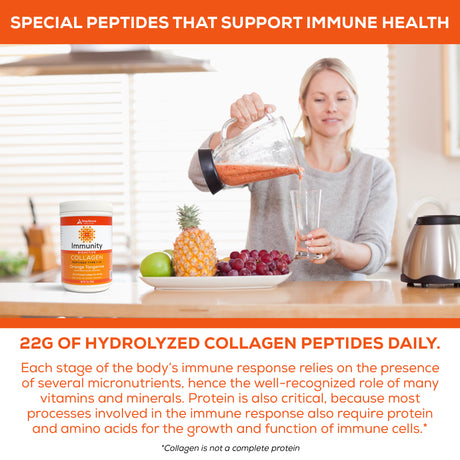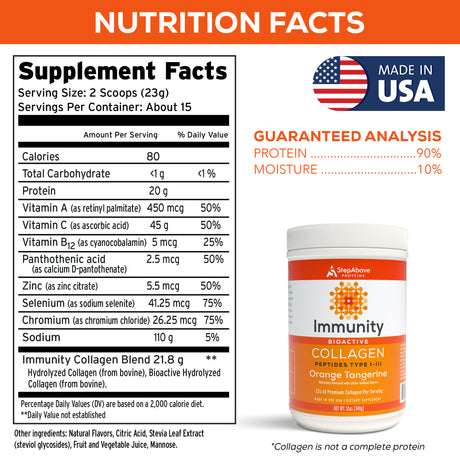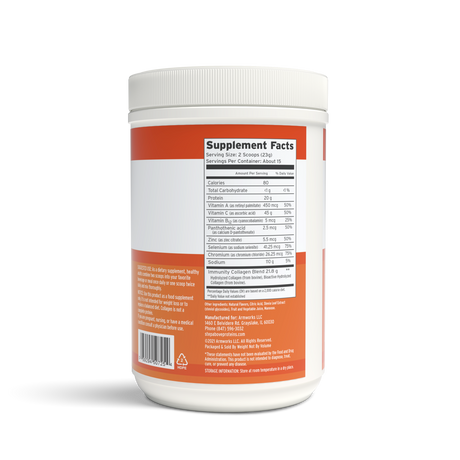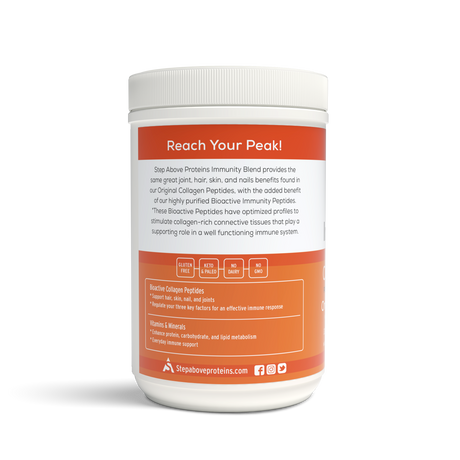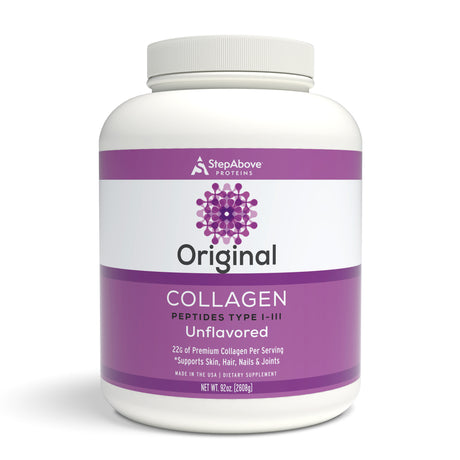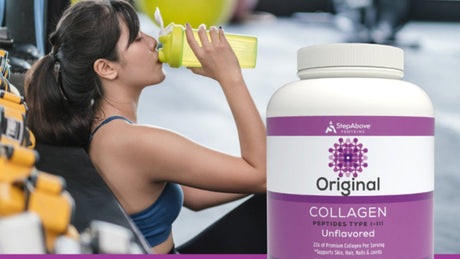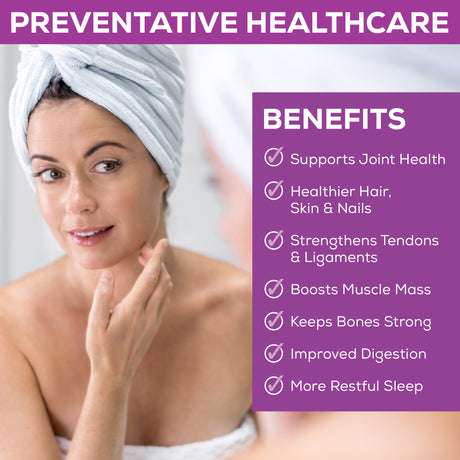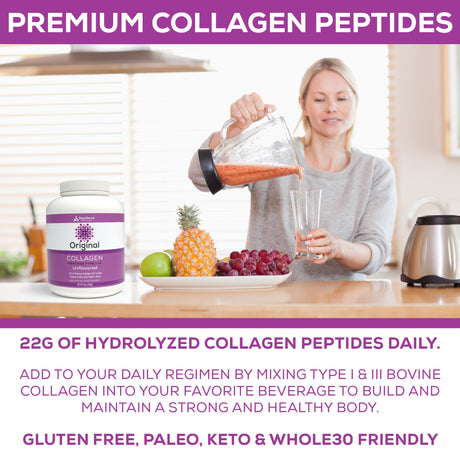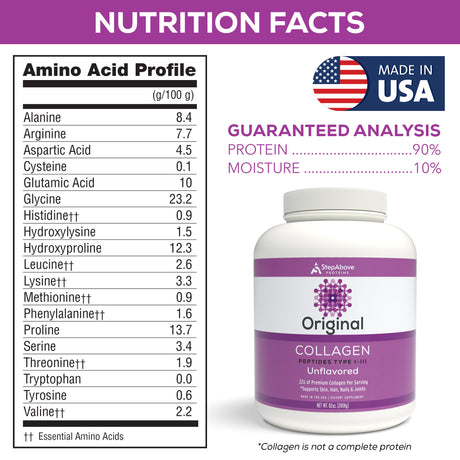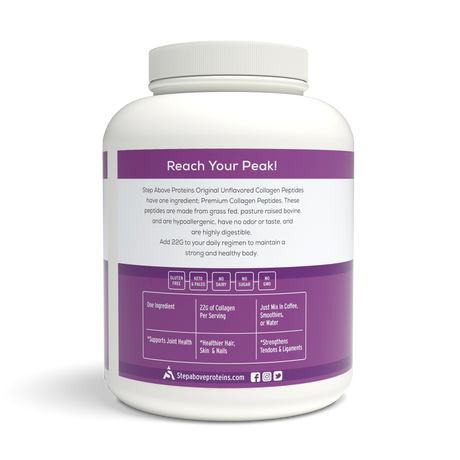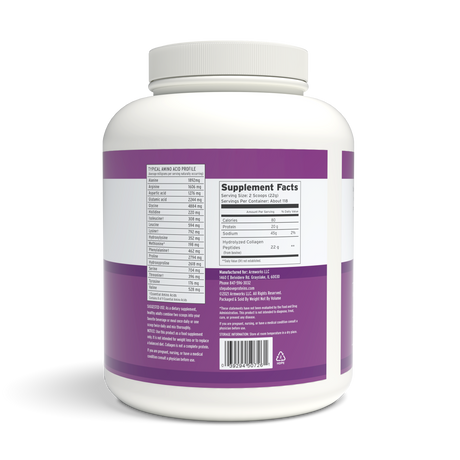The Power of Collagen: Unlocking the Secret to Healthier Skin, Joints, and More
Collagen is often called the "glue" that holds the body together, and for good reason. It’s the most abundant protein in our bodies, found in skin, bones, muscles, tendons, and ligaments. While it's essential to various bodily functions, collagen's beauty and health benefits have made it a buzzword in the wellness world. Founded in 2013, Step Above Proteins was a leader in bringing high quality bovine collagen to market.
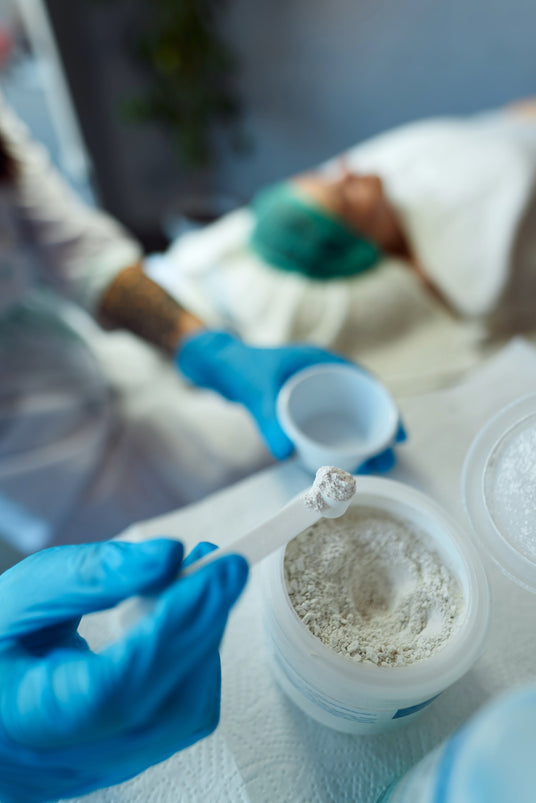
What Is Collagen?
Collagen is a fibrous protein that acts as the structural foundation for your skin, muscles, bones, and connective tissues. Think of it as the scaffolding that supports the architecture of your body. There are several types of collagen, but the most common are Type I, II, and III, each serving specific functions:
- Type I: Found in skin, tendons, and bones, this is the most abundant and strongest type.
- Type II: Found in elastic cartilage, which cushions the joints.
- Type III: Present in muscles, blood vessels, and organs, it’s often found alongside Type I collagen.
Step Above Proteins’ collagen is synthesized from Type I-III.
The Role of Collagen in the Body
Collagen’s role goes beyond just giving structure to tissues; it plays a crucial part in various bodily functions, including:
- Skin Elasticity and Firmness: Collagen helps maintain skin's structure and elasticity, making it look plump, smooth, and youthful.
- Joint Health: Collagen acts as a cushion for the joints, providing flexibility and reducing friction between bones.
- Bone Strength: It contributes to bone density and strength, helping bones stay resilient as we age.
- Wound Healing: Collagen accelerates the healing process by helping form new tissues, playing a vital role in recovering from injuries.
- Hair and Nails: Collagen strengthens hair and nails, promoting growth and reducing brittleness.

Why Collagen Production Declines with Age
As we age, our body’s natural collagen production decreases. From around the age of 25, collagen production begins to slow down, with a noticeable drop after the age of 40. This decline contributes to common signs of aging, such as:
- Wrinkles and fine lines
- Thinning skin
- Joint discomfort
- Weakened muscles and bones
- Hair thinning
Environmental factors like UV exposure, smoking, and a poor diet can also accelerate collagen breakdown.
Boosting Collagen: How to Maintain Healthy Levels
Although collagen levels naturally decline with age, there are steps you can take to preserve and even boost your collagen production. Here are some of the most effective ways:
1. Consume Collagen-Rich Foods
1. Consume Collagen-Rich Foods
Eating collagen-rich foods can help replenish your body’s supply of collagen. Some of the best sources include:
- Bone broth: Made from simmering animal bones, bone broth is packed with collagen and amino acids that promote skin elasticity and joint health.
- Fish and shellfish: Marine collagen, found in fish skin, scales, and bones, is easily absorbed by the body.
- Chicken: A great source of collagen, especially in the connective tissues like skin, cartilage, and bones.
- Egg whites: Rich in proline, an amino acid necessary for collagen production.
Dairy products: High in protein and amino acids that support collagen synthesis.
2. Incorporate Collagen Supplements
2. Incorporate Collagen Supplements
Collagen supplements have grown in popularity in recent years. These typically come in powdered or capsule form and contain hydrolyzed collagen, which is broken down into smaller particles for better absorption. Some benefits of taking collagen supplements such as Step Above Proteins include:
- Improved skin hydration and elasticity
- Joint pain relief
- Hair and nail strengthening
- Reduced appearance of fine lines and wrinkles
3. Eat Foods Rich in Vitamin C
3. Eat Foods Rich in Vitamin C
Vitamin C is essential for collagen synthesis, as it helps to stabilize collagen molecules. Incorporating plenty of vitamin C-rich foods into your diet can support the natural production of collagen. Some great sources include:
- Oranges, grapefruits, and lemons
- Strawberries, kiwis, and pineapples
- Bell peppers, broccoli, and Brussels sprouts
4. Avoid Collagen-Damaging Habits
4. Avoid Collagen-Damaging Habits
Certain lifestyle habits can contribute to the breakdown of collagen. Here are some tips for protecting your collagen levels:
- Avoid smoking: Smoking accelerates the breakdown of collagen and can lead to wrinkles and loss of skin elasticity.
- Limit sun exposure: Ultraviolet (UV) rays from the sun can damage collagen fibers, leading to premature aging and wrinkles.
Eat a balanced diet: A diet rich in antioxidants, vitamins, and minerals helps protect collagen from oxidative stress and damage.
5. Consider Collagen-Boosting Skincare
5. Consider Collagen-Boosting Skincare
Topical skincare products, such as creams and serums containing collagen-boosting ingredients like retinoids and peptides, can help stimulate collagen production. Though collagen molecules are too large to be absorbed directly through the skin, these products encourage your skin’s natural collagen production, improving skin texture and firmness.
